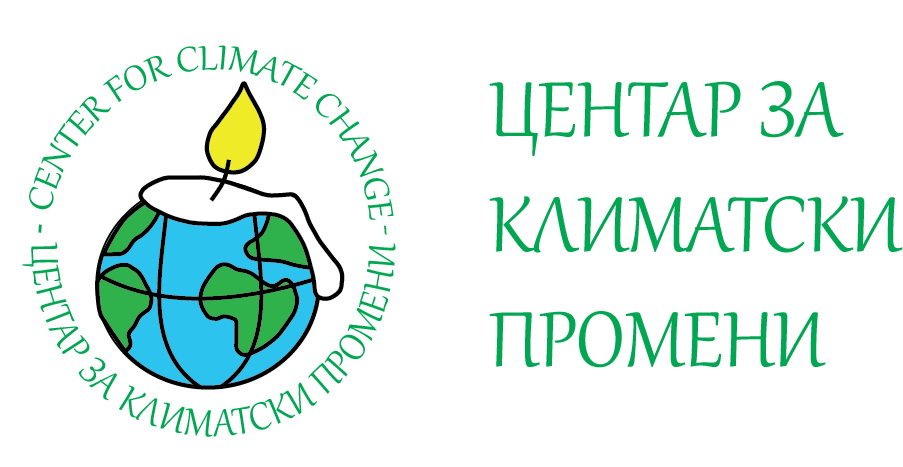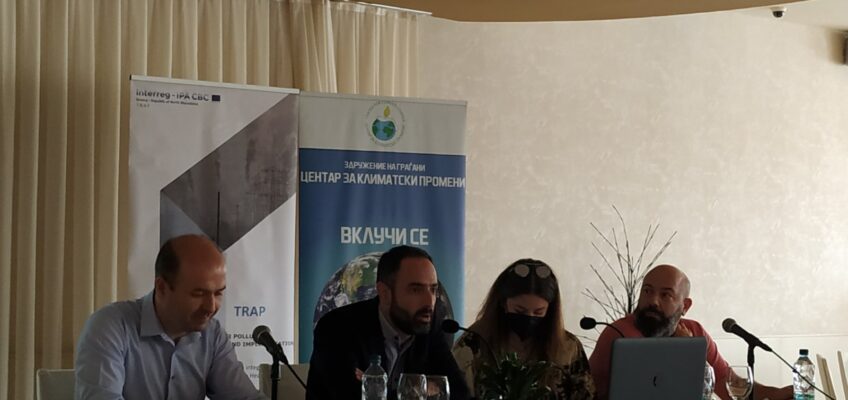On July the 8th, at 11 am was realized the final conference of the project “Development and implementation of the health index for air pollution in the cross-border region” – (TRAP) held in the Capri hotel in Bitola. Within the framework of the conference, the air quality plan for the Municipality of Bitola was presented, the results of the study on the proportioning of air pollutants in the city of Bitola, the inventory of emissions of air pollution substances for the Southeast planning region, as well as the air pollution health index was developed.
The study identifies five main factors of air pollution related to the absence of a central heating system, where largest percentage of households are using wood for heating, which, together with oil and fuel oil, are one of the biggest air pollutants. Furthermore, industry, electricity production, and construction activities are responsible for air pollution in Bitola. According to Prof. Dejan Mirakovski, the biggest polluter, despite the fact that it has a seasonal character and is not present throughout the year, remains the biomass, i.e. the burning of biomass accounts for 24%. Oil and fuel oil account for an additional 18%, followed by energy production, mineral dust and traffic. Within the framework of the project, a health risk assessment study was completed. One of the main conclusions of the study is that 15 % of the mortality in the population from Bitola is due to air pollution. This means a 15 % exceeding of the limit given by the World Health Organization – WHO, while the limit set by the European Union is slightly lower. With such analyzes and measurements, as well as the implementation of appropriate measures to reduce pollution, these deaths can be prevented. With targeted actions we can save lives, and therefore we need motivation for eco-actions that should not be organized only by politicians, but also by citizens and business entities, and to practice intersectoral organization of actions that is also in the plan of this project. At the same time, it must be mentioned that the new recommendations of the WHO regarding air pollution are even stricter and therefore it should be the number one priority that needs to be solved, regardless of other problems in the community” – pointed out Prof. Gjorgjev from the Institute of Public Health, who was actively involved in the project activities.
At the conference, the Deputy Minister of Environment, Hristina Odzaklieska, gave a welcoming speech and emphasized that the results of the project must be used in practice. This should be a continuous activity to see visible results over time. Also, improving the capacities in the municipalities and the mutual cooperation between the local and central level will surely give results.
With the assistance of this project, a monitoring station for ambient air quality was placed in Gevgelija and equipment was purchased to replace the obsolete instruments at the monitoring station Bitola 1. Also within the project, the inventory of polluting substances in the air for the South-Eastern region was created with the help of which the potential air polluters in this region were identified, which makes the planning of measures and the creation of policies for better air quality in this region significantly easier.
One of the most important results of the project is the developed health index that will be integrated on an IT tool (web platform) from where it will be available to the general public and will be used not only in policy making but also in the protection of human health.
The purpose of the project is to improve the management and protection of the cross-border area in RS. Macedonia and R. Greece by establishing an air quality monitoring network.
The project is supported and co-financed by the European Union and the National Funds of the countries participating in the IPA Program for cross-border cooperation between Greece – the Republic of North Macedonia 2014-2020.
The Center for Climate Change expressed satisfaction with the cooperation with all partners as part of this complex project, and especially with the quality of the studies and analyzes made by the engaged experts. It will continue to advocate for raising the awareness of the general public regarding air pollution, given that without quality air, cannot expect an improvement in the quality of life. Policy makers must be focused on clean technologies, green industry, e – mobility and energy transition. The paradigm of the classical economy grow first, clean up latter односно pollute first, clean up later is already past. All investments must be complementary to the principles of sustainable development. Otherwise, the price of the implicit costs that we all pay as a society by remediating environmental damage, illnesses, and of course premature deaths as a result of pollution is enormous.



